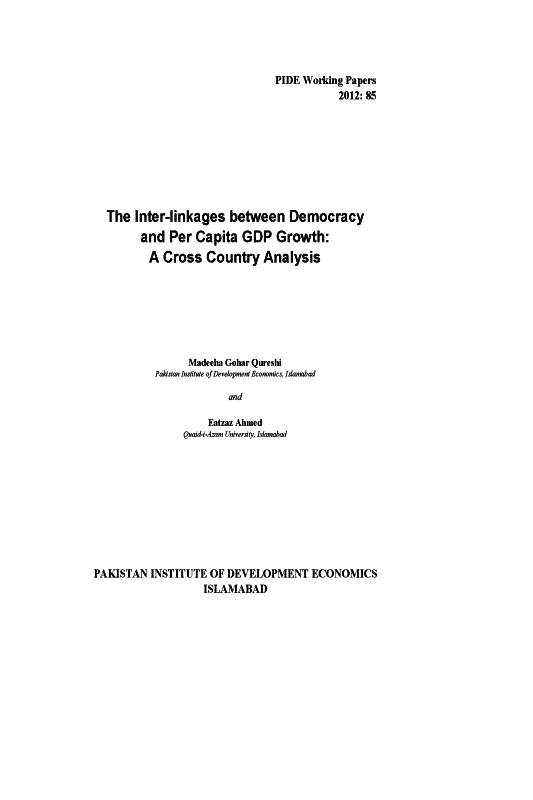The Inter-linkages between Democracy and Per Capita GDP Growth: A Cross Country Analysis
The empirical growth literature gives no clear indication as to how democracy impacts growth; there is evidence of both positive and negative effects and also of no direct link in democracy and growth nexus. In this study an attempt has been made to resolve this controversy by putting this question in a dynamic simultaneous equation framework that combines in a system the regression in differences with regression in levels applied on a cross county data set over the period 1987-2002. This type of modelling not only controls for the endogeneity of the explanatory variables and the unobserved country-specific effects but also allows us to analyse the impact of democracy on per capita GDP growth and the reverse causation from per capita GDP growth on political and civil freedom simultaneously. Our result shows evidence in support of a quadratic impact of the democracy on per capita GDP growth (an inverted U relationship) that is per capita GDP is found to be increasing in democracies at low levels but after a certain moderate level of democracy this relation turns negative. The support of reverse causation from per capita GDP growth to political and civil freedom is found only in countries grouped as partially free and free democracies. However we do not find any evidence in support of Lipset Hypothesis that prosperity leads to increase in propensity to experience political freedom taking all countries into consideration.




